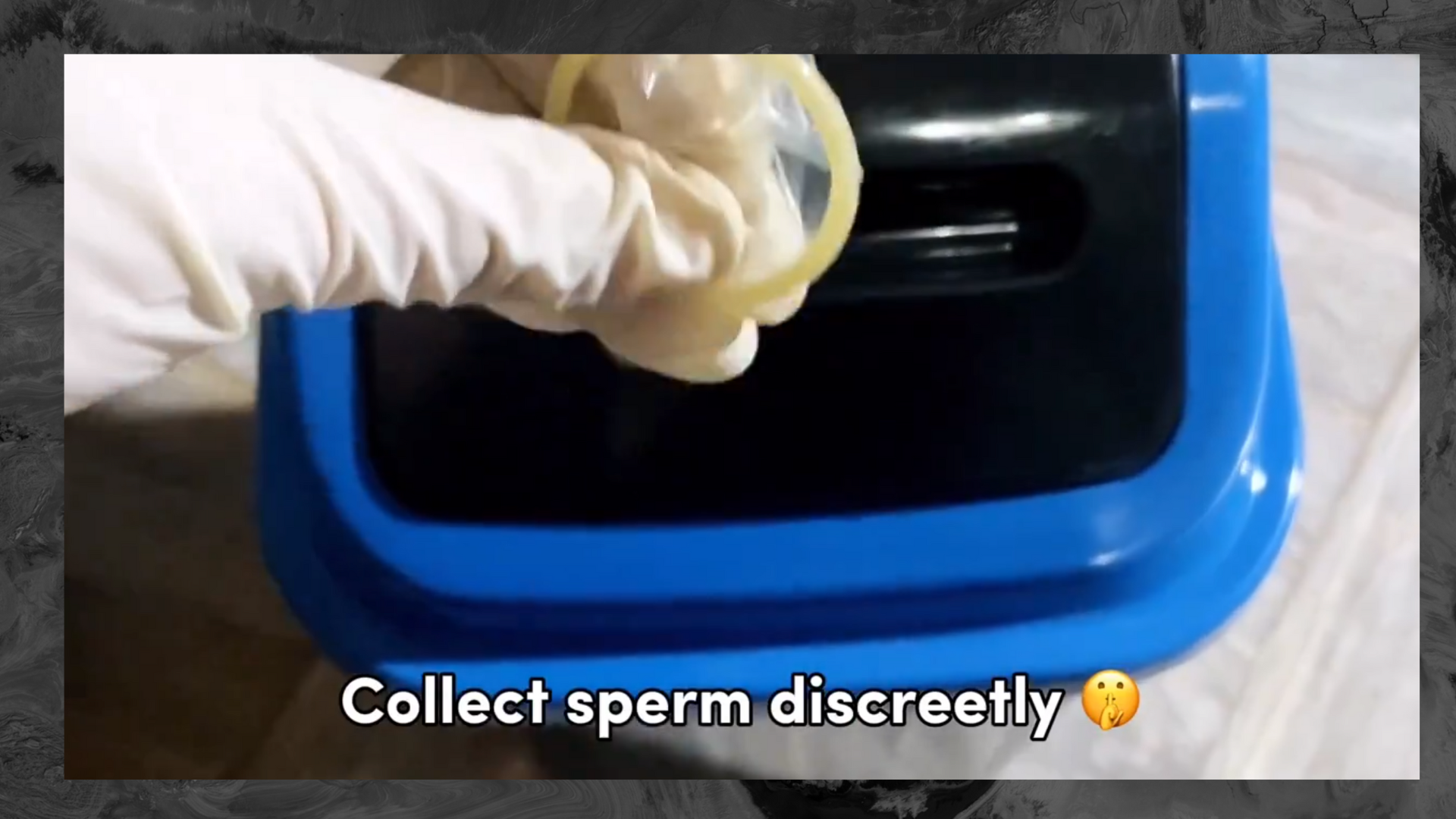A company that makes a DIY artificial insemination kit pivoted to advertising its usefulness for sperm theft: “You don’t need his permission to get pregnant,” one ad says, in a fairly obvious attempt at using Twitter’s outrage economy to try to go viral.
Make a Mom is a company that sells syringes and collection kits for inseminating yourself at home. For months, Make a Mom posted almost exclusively about the benefits of its products for LGBT+ couples, with hashtags like #lgbtfamily and #lesbianmoms.
In the last few days, however, the company’s official Twitter account has begun posting videos and posts about stealing sperm. One video features instructions for impregnating a woman with semen from a used condom taken out of a trash can. Captions for the videos say, “Making him a dad without his permission 😋” “Should I tell him it’s his kid?” and “Woman quietly sneaks condom from trash to perform home insemination while her partner sleeps in the other room. What do you think about this ? Is this legal ? Will he still owe child support ?”
A Bluesky user also noticed that Make a Mom is running these videos and captions as ads on Twitter. Twitter’s advertisements have gotten steadily worse since Elon Musk bought the site last year; recently, Musk told big advertisers like Disney to “go fuck yourself.” Subscription box company FabFitFun recently ran an ad that said “Use code: GoFuckYourself,” which caused FabFitFun to lose subscribers.
The answer to those questions might surprise you: it’s not illegal to use someone’s sperm non-consensually to get yourself pregnant, and in past cases of secretive sperm use, courts have ruled that a left-behind load could be considered a “gift.”
Make a Mom knows this, and has also been replying to engagement bait prompts, like “what is unethical but not illegal?”
Make a Mom’s new advertising direction went viral on Reddit, where a lot of people learned that surreptitiously siphoning semen isn’t illegal. Semen “theft” has long been part of pop culture sex lore; years ago, a rumor began that rapper Drake put hot sauce in his used condoms before tossing them in the trash to keep sexual partners from doing what Make a Mom is endorsing on Twitter.
The CEO of Make a Mom, who only signed his email “Anthony,” told me in an email that “it appears there has been a significant misunderstanding regarding our marketing content and the ethos of our company.”
“We firmly believe in and advocate for the responsible use of our products. Any portrayal or suggestion of using our kits for inseminating without explicit consent is not only against our company policy but is also contrary to our core values and the message we wish to convey to our customers and the public,” Anthony said. “It is possible that our marketing materials may have been misinterpreted or misrepresented. We take full responsibility for this and are currently reviewing our advertising strategies to ensure they reflect our commitment to ethical practices. Our intention has always been to empower individuals in their journey towards parenthood, but not at the expense of consent and moral integrity.”
He confirmed that the @Makeamom Twitter account is “unequivocally” the company’s official account. Contradictory to his statement, the posts encourage people to use the products at the explicit expense of consent, and acknowledge that using sperm nonconsensually is unethical. It’s difficult to imagine how “collect sperm without him knowing” could be misinterpreted.
Anthony said the company is taking “immediate steps to address the concerns raised and ensure our messaging aligns with our core values of consent and ethical practice,” but didn’t explicitly say what those steps are.
On Monday, Make a Mom published a blog post on its website about the legal and ethical implications of taking sperm from a used condom, “Legal Gray Areas: Post-Coital Condom Retrieval To Get Pregnant.”
“The ethical implications are profound. On one hand, there's the question of a man's right to decide where and how his genetic material is used. On the other, there's the woman's autonomy over her body and reproductive choices. This situation challenges conventional views on reproductive consent and control,” the blog post says. “The availability of at-home insemination kits adds another layer to this issue. These kits, which can be legally purchased, provide the tools necessary for self-insemination. When combined with sperm retrieved from a used condom, they enable a woman to attempt conception without the male partner's ongoing consent or knowledge.”
There are tons of at-home insemination kits on the market, but the vast majority aren’t FDA approved. The FDA just approved an at-home kit for the first time last week.


